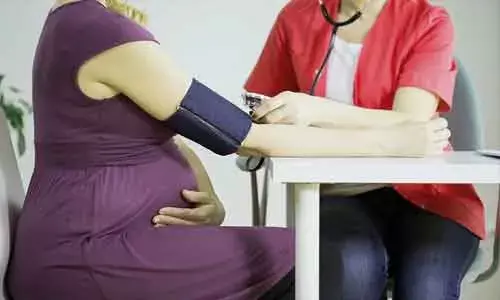- Home
- Medical news & Guidelines
- Anesthesiology
- Cardiology and CTVS
- Critical Care
- Dentistry
- Dermatology
- Diabetes and Endocrinology
- ENT
- Gastroenterology
- Medicine
- Nephrology
- Neurology
- Obstretics-Gynaecology
- Oncology
- Ophthalmology
- Orthopaedics
- Pediatrics-Neonatology
- Psychiatry
- Pulmonology
- Radiology
- Surgery
- Urology
- Laboratory Medicine
- Diet
- Nursing
- Paramedical
- Physiotherapy
- Health news
- Fact Check
- Bone Health Fact Check
- Brain Health Fact Check
- Cancer Related Fact Check
- Child Care Fact Check
- Dental and oral health fact check
- Diabetes and metabolic health fact check
- Diet and Nutrition Fact Check
- Eye and ENT Care Fact Check
- Fitness fact check
- Gut health fact check
- Heart health fact check
- Kidney health fact check
- Medical education fact check
- Men's health fact check
- Respiratory fact check
- Skin and hair care fact check
- Vaccine and Immunization fact check
- Women's health fact check
- AYUSH
- State News
- Andaman and Nicobar Islands
- Andhra Pradesh
- Arunachal Pradesh
- Assam
- Bihar
- Chandigarh
- Chattisgarh
- Dadra and Nagar Haveli
- Daman and Diu
- Delhi
- Goa
- Gujarat
- Haryana
- Himachal Pradesh
- Jammu & Kashmir
- Jharkhand
- Karnataka
- Kerala
- Ladakh
- Lakshadweep
- Madhya Pradesh
- Maharashtra
- Manipur
- Meghalaya
- Mizoram
- Nagaland
- Odisha
- Puducherry
- Punjab
- Rajasthan
- Sikkim
- Tamil Nadu
- Telangana
- Tripura
- Uttar Pradesh
- Uttrakhand
- West Bengal
- Medical Education
- Industry
Women with high BP during pregnancy may develop diabetes later on: Study

Canada: Women with prior hypertensive disorders of pregnancy (HDP) are at higher risk of developing type 2 diabetes, finds a recent study in the journal Diabetologia. The study results indicate that postpartum diabetes prevention and screening counseling may be warranted in women with a history of hypertensive disorders of pregnancy (HDP).
The association between a history of HDP and subsequent type 2 diabetes remains inconclusive. Grace Zhao, University of Toronto, Toronto, ON, Canada, and colleagues reviewed the most recent evidence to quantify the association of previous HDP with incident diabetes.
For the purpose, the researchers performed a systematic search of online databases up to 17 February 2020 and identified observational studies of the association between HDP (pre-eclampsia or gestational hypertension) and incident diabetes. It excluded studies of women with pre-pregnancy diabetes.
Two independent reviewers screened citations and abstracted results. Study quality was assessed in duplicate using the Newcastle–Ottawa Scale. Random-effects models were used to pool effect estimates. Heterogeneity was assessed using the I2 statistic.
The researchers included 16 cohort studies with a total of 3,095,457 participants (unspecified HDP n = 5, pre-eclampsia only n = 4, gestational hypertension and pre-eclampsia n = 7) after screening 4617 citations.
Key findings of the study include:
- Risks of subsequent diabetes were significantly higher in women with a history of any HDP (HDP: adjusted hazard ratio [aHR] 2.24; gestational hypertension: aHR 2.19; pre-eclampsia: aHR 2.56; preterm pre-eclampsia: aHR 3.05).
- The association between HDP and diabetes persisted in studies that adjusted for gestational diabetes mellitus (aHR 2.01).
"HDP are independently associated with a higher risk of diabetes. Further study is needed to determine how HDP contribute to diabetes risk prediction to develop evidence-based screening and prevention strategies," concluded the authors.
The study titled, "Risk of type 2 diabetes mellitus in women with prior hypertensive disorders of pregnancy: a systematic review and meta-analysis," is published in the journal Diabetologia.
DOI: https://link.springer.com/article/10.1007/s00125-020-05343-w
Dr Kamal Kant Kohli-MBBS, DTCD- a chest specialist with more than 30 years of practice and a flair for writing clinical articles, Dr Kamal Kant Kohli joined Medical Dialogues as a Chief Editor of Medical News. Besides writing articles, as an editor, he proofreads and verifies all the medical content published on Medical Dialogues including those coming from journals, studies,medical conferences,guidelines etc. Email: drkohli@medicaldialogues.in. Contact no. 011-43720751


